Post
A catch
Save a catch to start your fishing logbook. You will be able to to share it with the community if yo want!
A fishing trip
Post an ad to go fishing with other fishermen
Save a catch to start your fishing logbook. You will be able to to share it with the community if yo want!
Post an ad to go fishing with other fishermen
Share a thought, a question with the community
My favorite cities
×Join our 183 fishermen and our 1 cofisherman in Lamington in Highland. The fishing forecast is currently 3.3. The most caught fishes here are the flounder fish, the coalfish, the bull huss and the brill fish. Come try the most famous fishing techniques like the tips on material to catch bass with jig, barracuda trolling, underwater fishing or eel fishing in freshwater.
Our fishing forecast of Lamington indicates the best time to go fishing in this city.
The Flounder Fish
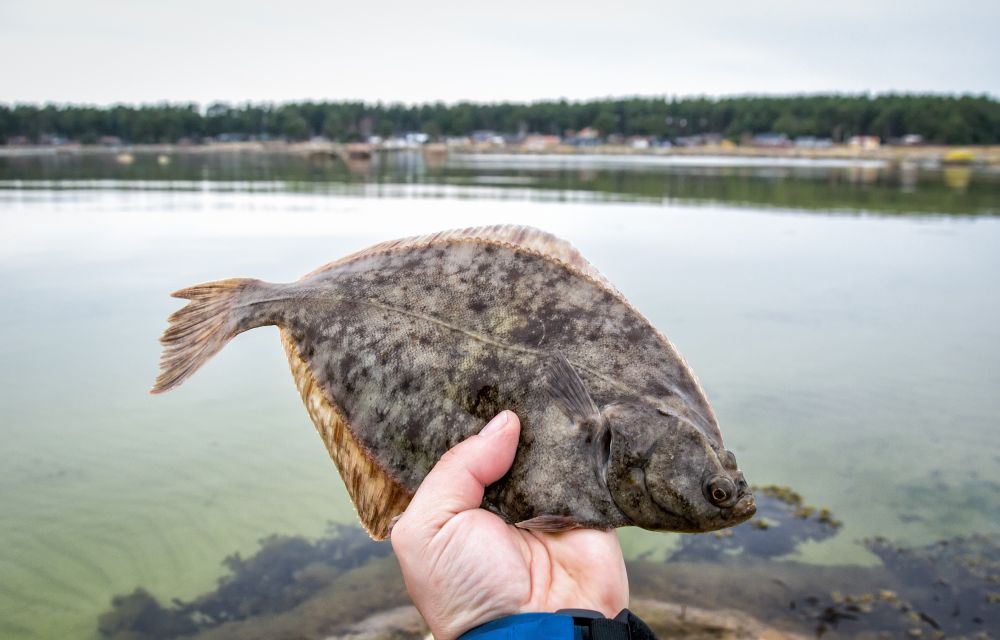
The Flounder Fish belongs to the Pleuronectidae family. It usually reaches a size of 50 cm; the maximum observed size is 60 cm for a weight of 1.5 kg. The maximum lifespan is estimated at 15 years. It reproduces in early spring. The female can lay up to 2 million eggs. The best time to fish it is in spring and autumn. The Flounder fish is a flatfish of general losanitary appearance, taking into account the triangular shape of the head and dorsal and anal fins. Both eyes are on the same side of the head, on the right side, for about 2/3 of the individuals. The mouth is small and terminal, with a slightly tapered snout. The oral commissure is located on the same line as the center of the eye. The lateral line barely curves towards the dorsal edge at the pectoral fins. It has a row of tubers in its front part. Similarly, the base of the dorsal and anal fins is highlighted by a line of tubers, which are clearly palpable. The anal fin has 35 to 46 soft rays. The oculate side has a variable coloring, from olive green to reddish brown, or grey, enhanced by dark green mottling, with small, dull and few orange spots. This helps to give it a "dirty" appearance. The blind side is white.
The Flounder Fish is a famous fish you can catch in Lamington.The Coalfish
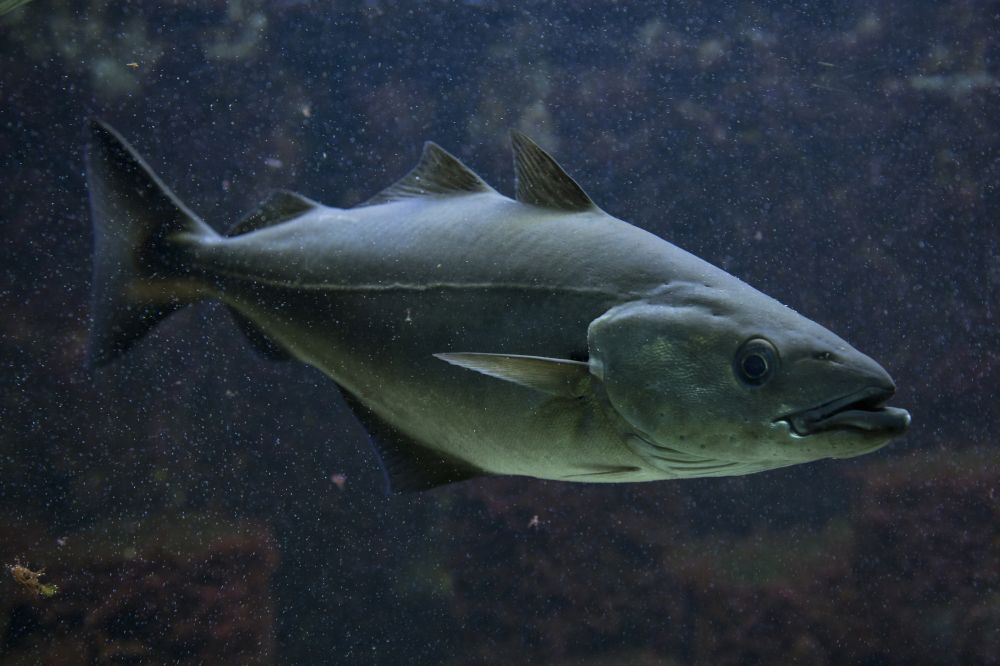
The Coalfish belongs to the Gadidae family. With a size of up to 1.30 m, the coalfish can weigh up to 10 kg. It has a life span of 8 to 10 years. The breeding period varies according to the location. The female lays up to 4 million eggs. It can be fished all year round but at a minimum catch size of 61 cm. Its body is fusiform and elongated, covered with small round scales. In profile, the lower jaw is slightly prominent. The back is greenish brown; the belly is silvery. The clear and almost straight lateral line is well marked. It extends along the entire length of its sides. There may also be a black spot at the base of the pectoral fins. The mouth is terminal. She's black on the inside. The fins are soft-raked. They are dark like the back of a fish, except for the lighter pelvic fins. The coalfish has 3 dorsal fins, the first being triangular, the others longer, and 2 anal fins. The pelvic fins are positioned well forward, under the head, and the caudal fin is a little concave. Young people may have a small barbel on their chin.
The Coalfish is a famous fish you can catch in Lamington.The Bull Huss
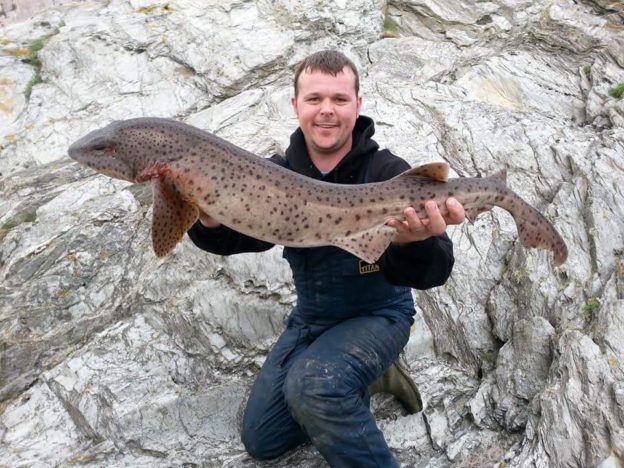
The Bull Huss belongs to the Scyliorhinidae family. Small in size, they usually measure 60 to 80 cm, although there are larger ones, since they can reach 1.5 m in the Mediterranean and 2 m in the Atlantic. This fish can live for 75 years. It spawns a hundred eggs all year round, especially in the late winter and in July. It is abundant every day of the year. This fish is not really active but still is hard to catch. The upper part of the Bull Huss is light brown in color, covered with small dark brown spots. Because of this pattern of spots, it is also called spotted cat shark. The part of the flank is white and grey. The mouth and nose holes are below his obtuse head. The particularity of the Bull Huss is that its nostrils are linked to the mouth by a curved line.
The Bull Huss is a famous fish you can catch in Lamington.The Brill fish
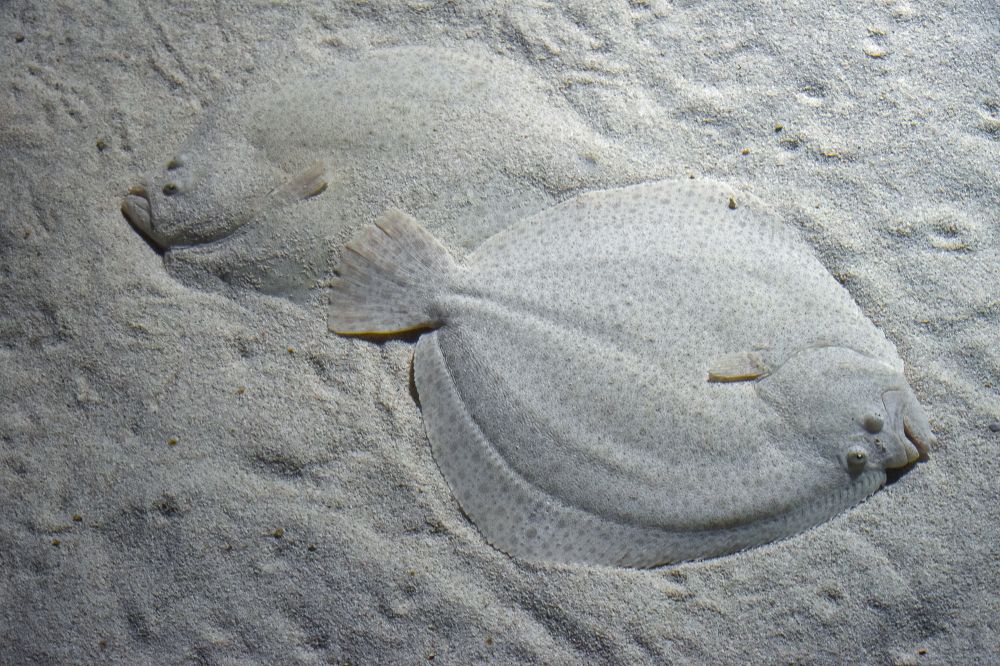
The brill fish belongs to the Scophthalmidae family. The minimum size of capture is 30 cm but can reach 75 cm for 6 kg. He can live up to 3 years. It breeds from late spring to early summer. The female can lay up to 15 million eggs. It can be fished all year. The brill has an oval body. It rests on its right side and has its left side. Thus, when placed with the head facing left, both eyes are located above the mouth. Its common name of brill comes from a particularity of its dorsal fin, whose origin is far in front of the eye and whose first rays are free and branched. The distance between the two eyes is greater than the diameter of one eye. The lateral line is very curved at the pectoral fin. As with many flatfish, the coloring is variable and depends on the biotope. The brill is indeed capable of homochromia, i.e. to match the color of the background. The coloring is rather brown, more or less speckled, and also varies according to the environment on a live fish. It has many round spots whose edges are incomplete rings of darker colors. The blind side is whitish.
The Brill fish is a famous fish you can catch in Lamington.Black Bream Fish
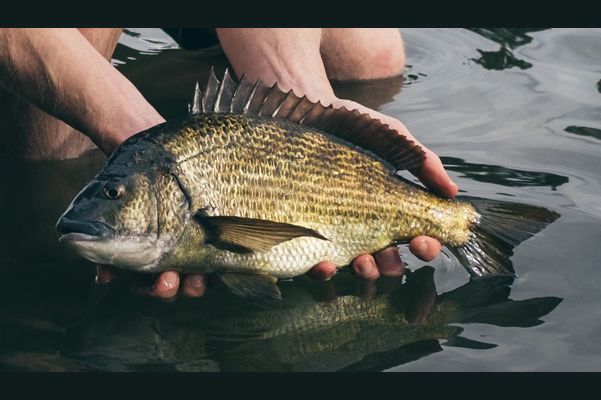
The Black breamfish, also known as Acanthopagrus butcheri, is a Sparidae. In general, its average size is 15 to 35 cm and its weight is 500 g to 2.5 kg. However, some individuals can reach up to 60 cm and 4 kg. The black bream has a lifespan of 27 years. Its spawning period is between August and January. It can have up to 300,000 spawn each season. It is not hard to catch and offer a little resistance. The Black bream has a high body and relatively compressed laterally, with symmetrically curved dorsal and ventral fins. The mouth is of moderate size compared to the body and has six incisors in the front of the lower and upper jaws. The body is covered with large scales that can be cycloid or slightly ctenoid. The head is essentially flake-free, except for the lids. A flake sheath covers the soft ray bases of the dorsal, anal and caudal fins. The Black Bream is silvery, from golden brown or bronze to grey-green on the back as well as on the sides with sometimes greenish reflections, depending on its habitat. The belly is white. The fins are all dark, with black borders. The caudal fin is often dark olive-brown.
Black Bream Fish is a famous fish you can catch in Lamington.Our fishing forecast of Lamington indicates the best time to go fishing in this city.
Our fishing forecast of Lamington indicates the best time to go fishing in this city.
Our fishing forecast of Lamington indicates the best time to go fishing in this city.
